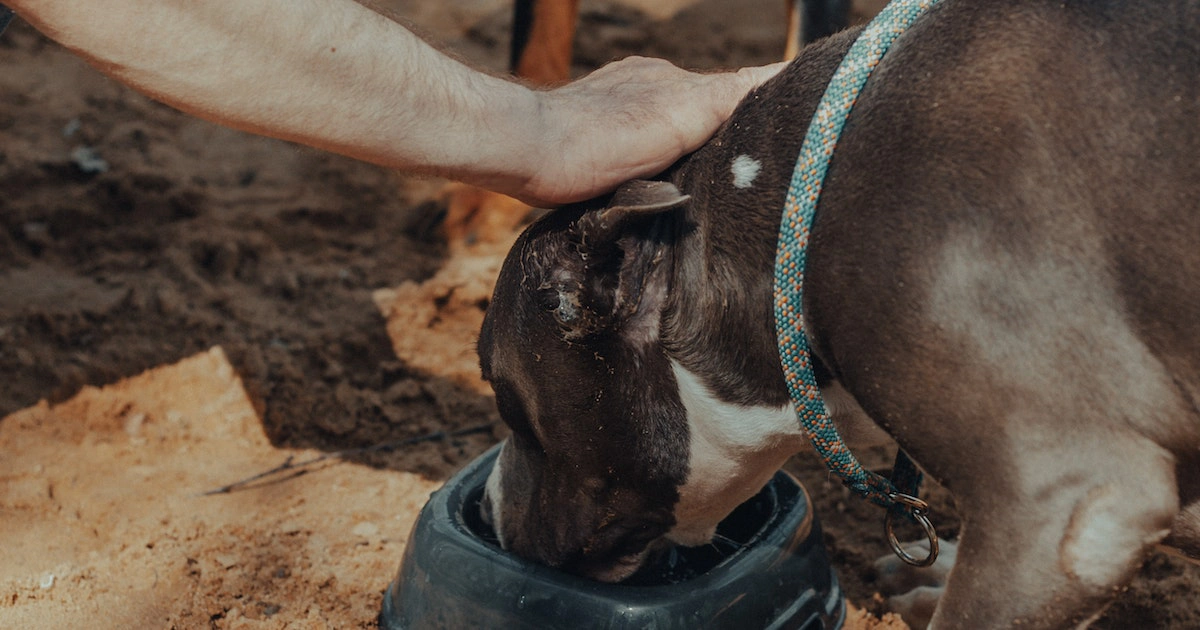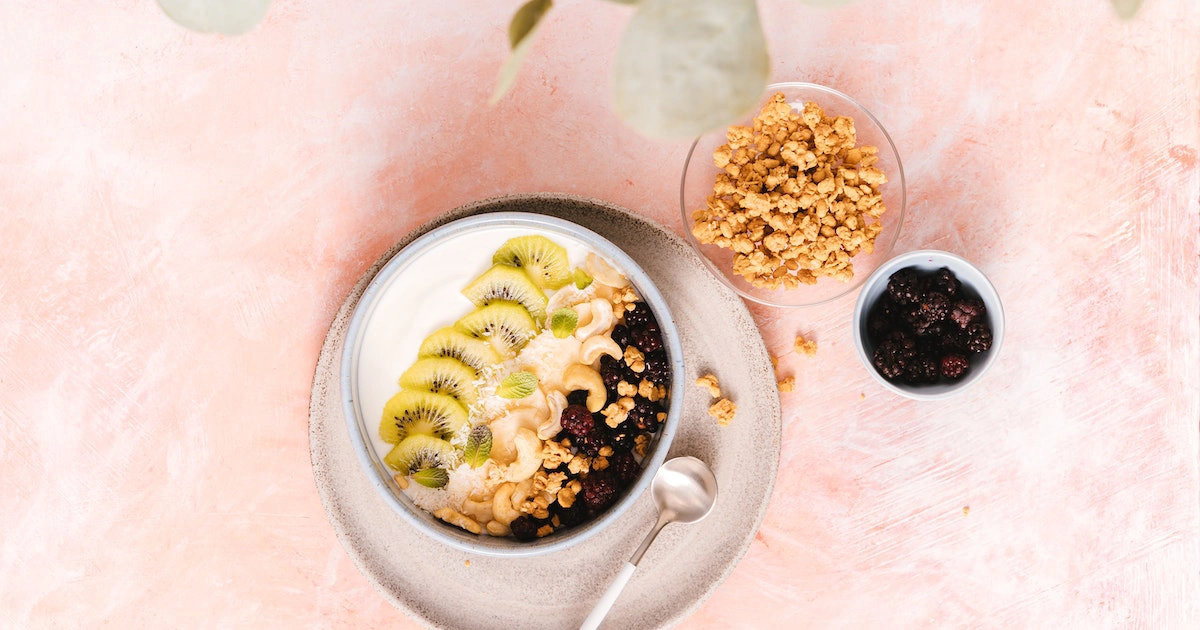All dog owners desire the best nourishment for their four-legged companions. When their typical diet isn’t working for them, that sometimes entails looking into different food options; dog owners may consider giving their pets baby food as one option. Can, however, dogs eat baby food? The answer depends on several variables, such as the ingredients and your dog’s particular needs; therefore, it cannot be answered with a straightforward yes or no. We’ll examine the benefits and drawbacks of giving your dog baby food in this post so you can decide whether it’s best for your four-legged buddy.
Which Baby Food Is Safe For Dogs?
Many dog owners want to know if adding baby food to their dog’s regular diet will be beneficial. While some types of baby food may be safe for dogs, not all are created equal, and it’s essential to know which ones you can offer your furry friend.
When choosing baby food for your dog, make sure it doesn’t contain any ingredients that could be harmful to them, such as garlic or onion powder, added sugars or salt. Opt for plain and straightforward varieties like pureed vegetables (carrots, green beans) or fruits (applesauce). As xylitol is poisonous to dogs, be sure the baby food doesn’t include any of it.
It’s also essential to remember that baby food shouldn’t be used in place of your dog’s regular meals. It does not include all the essential nutrients that dogs require in their diet, even though it can not be used as a regular treat or supplement. Before modifying your pet’s diet, consult your veterinarian.
Will Baby Food Upset My Dogs Stomach?
It usually is safe for dogs to eat baby food, but it depends on the specific type and ingredients. Some types of baby food may contain ingredients that can be harmful or difficult for dogs to digest, such as onions or garlic. Reading the label carefully before feeding your dog any human food is essential.
Some baby foods may also contain added sugars or preservatives that can upset a dog’s stomach.
While dogs can eat baby food without issue, it’s essential to choose wisely and consult a veterinarian if you have any queries about your dog’s diet.
Can Dogs Eat Cerelac?

Cerelac is a baby food commonly given to infants as it contains different nutrients and minerals that babies need for growth and development. However, can dogs eat cerelac? The answer to this question is no. Dogs have different nutritional needs compared to humans, especially babies. Feeding your dog with human food can lead to health issues such as obesity, pancreatitis, and digestive problems.
Moreover, some of the ingredients present in cerelac are unsuitable for dogs. For instance, most baby foods contain high levels of carbohydrates which can cause an increase in blood sugar levels in dogs leading to weight gain or even diabetes. Additionally, certain ingredients like onions or garlic are toxic to dogs. While cerelac may seem like a great source of nutrition for babies, it’s unsuitable for dogs’ consumption. Always ensure you feed your dog high-quality dog food that meets its specific nutritional needs instead of relying on human food, which could potentially harm them.
Can Dogs Have Baby Food With Lemon Juice?
It is generally safe for dogs to consume baby food as long as it contains no harmful ingredients, such as garlic and onions. However, when considering feeding baby food to dogs, pet owners should be aware of the ingredients used in the product. In particular, some types of baby foods may contain lemon juice, which can harm dogs.
Lemon juice contains a high level of citric acid, which can cause stomach irritation and upset for dogs. Ingesting large amounts of citric acid can also lead to diarrhoea and vomiting. Therefore, pet owners must check the ingredient list before feeding their dogs any baby food that contains lemon juice.
If you are not sure whether your dog should eat certain types of human food, it is always best to discuss it with a veterinarian first. They can advise on what foods are safe for your dog and what foods should be avoided altogether. Additionally, they can recommend suitable alternatives that will give your furry friend all the necessary nutrients they need without risking their health.
Why Is Baby Food Suitable For Dogs?
Yes, dogs can eat baby food, which can be a good option for specific situations. Baby food typically contains simple ingredients that are easy for babies and dogs to digest. It’s also free from artificial flavours, making it a healthier option than some commercial dog foods.
Additionally, baby food is often high in protein and can give a quick energy boost to dogs who need it. For example, suppose your dog is recovering from an illness or surgery and has difficulty eating solid foods. In that case, baby food can provide the necessary nutrients without putting extra strain on its digestive system.
However, not all types of baby food are safe for dogs. Avoid any products that contain onion or garlic, as they are toxic to dogs in large amounts. Also, avoid any flavoured varieties containing added sugar or salt, as these can harm your dog’s health in excess. Always check with your veterinarian before any modification of your dog’s diet.
Can Dogs Eat Yogurt?

The answer is yes, and dogs can eat yoghurt in moderation. Yoghurt is an excellent source of calcium and protein for dogs. It also contains probiotics that can help with digestive health.
However, not all types of yoghurt are safe for dogs to consume. Choosing plain, unsweetened yoghurt without any added flavours or sweeteners is vital. Avoid any yoghurts containing xylitol, an artificial sweetener toxic to dogs.
When introducing yoghurt into your dog’s diet, start with small amounts and watch for any symptoms of gastrointestinal upset, such as vomiting or diarrhoea. As always, speaking with your veterinarian before modifying your dog’s diet is best.
As for baby food, some varieties are safe for dogs, while others should be avoided. Plain meat-based baby foods without any added spices or seasonings can be a good source of protein for dogs who have difficulty eating dry kibble. However, avoid giving your dog baby foods containing garlic or onion, as they can be poisonous in large quantities. Additionally, avoid feeding your dog any baby foods containing fruits like grapes or raisins, which can cause kidney damage in some dogs.
Can Dogs Eat Banana?
Many dogs enjoy eating fruits, and bananas are among the most popular. Bananas are a good source of vitamins B6 and C, fibre, magnesium, and potassium. However, moderation is key, like any other food you give your dog. While bananas can be healthy for dogs when given in small quantities as a treat or occasional snack, too much might cause digestive problems such as constipation or diarrhoea.
When feeding your dog bananas, you should avoid giving them the peel as it contains high amounts of fibre that could lead to intestinal blockages. Additionally, some dogs might have allergies to bananas or develop an upset stomach after eating them. Always introduce new foods gradually into your dog’s diet, and watch out for any adverse reactions.
Suppose you’re considering feeding your dog baby food instead of regular meals due to health issues or pickiness with their current food options. In that case, it’s essential to read labels carefully before purchasing. Some types of baby food may contain ingredients that harm dogs, such as onions or garlic in savoury flavours and artificial sweeteners like xylitol in sweet flavours. Consult with your veterinarian before altering your pet’s diet significantly.
What Vegetables Can Dogs Eat?
Many secure choices are available when it comes to giving vegetables to your dog. Many vegetables offer valuable nutrients that can help support your dog’s overall health and well-being. Some of the best vegetables for dogs include sweet potatoes, green beans, carrots, broccoli, and pumpkin. These vegetables contain vitamins and minerals that promote healthy digestion, strong bones and joints, and a shiny coat.
However, all vegetables are not safe for dogs to eat. For example, onions and garlic can harm dogs in large quantities. Additionally, some veggies like corn and peas may be more challenging for dogs to digest or have little nutritional value. As always, it’s essential to talk with your veterinarian about what foods you should feed your furry friend.
When it comes to baby food specifically, some brands may contain ingredients that could be harmful or unnecessary for dogs. It’s important to read labels carefully before offering any human food to your pet – even if it’s marketed as “for babies.” If you need clarification on whether a particular type of baby food is safe for your dog to eat or how much they should have at once, consult a veterinarian first.
Can Dogs Eat Corn?
Corn is a widely used ingredient in many types of dog food. However, the question remains whether dogs can eat corn as a stand-alone food item or in other forms, such as baby food. The reply to this question is yes; dogs can eat corn but with some critical considerations.
Corn contains high amounts of carbohydrates and fibre, making it an excellent energy source for dogs. However, feeding your dog excessive corn can lead to obesity and digestive problems. It’s essential to feed your dog only moderate amounts of corn and avoid giving them processed or canned corn that may contain additives harmful to their health.
Regarding baby food, you must be cautious about what type you give your pet. Some baby foods contain preservatives or artificial flavours that are unhealthy for dogs. Also, ensure that the baby food doesn’t contain any toxic ingredients to dogs, such as onions and garlic. While it’s okay for dogs to consume corn in moderation, always consult your veterinarian before introducing any new items into their diets, including baby foods containing corn derivatives.
What Fruit Can’t Dogs Eat?
Many dogs love to eat fruits, but not all fruits are safe. One fruit that should be avoided is grapes. Grapes can cause kidney disease in dogs, even in small amounts. Signs of grape toxicity include vomiting, diarrhoea, lethargy, and dehydration.
Another fruit that dogs should avoid is avocados. The flesh and pit of an avocado contain persin, which can cause upset stomachs in dogs. In significant cases, it can lead to heart damage or death.
Although pet owners should always read the label carefully to ensure no harmful ingredients, such as onions or garlic, could cause health problems for their furry friend. It’s also important not to rely solely on baby food as a source of nutrition for your dog. As they have different nutritional requirements than humans.
How To Feeding Baby Food To Your Dog?
It is normally safe for dogs to eat baby food, but it should only be in moderation. It is essential to check the baby food labels before feeding it to your dog. Look for safe ingredients for dogs, such as meat or vegetables, and avoid any containing onions or garlic.
Mix your dog’s baby food with their adjustable food or use it as a treat. Make baby food their primary source of nutrition, as it may provide only some of the necessary nutrients for their health. It is also important to switch up the flavours and types of baby food you give your dog to ensure they have a varied diet.
Feeding your dog baby food can be a great way to supplement their diet with additional nutrients and flavours. Remember to do so in moderation and always read the label before giving it to them.
Can Baby Dogs Drink Baby Milk?
Giving Baby Dogs Regular Cow’s Milk Or Dairy Milk Is Not Recommended As They Are Lactose Intolerant. However, Specially Formulated Puppy Milk Replacers Can Be Given To Newborn Puppies Who Cannot Nurse From Their Mother. These Puppy Milk Replacers Contain The Nutrients And Vitamins That Young Dogs Need For Proper Growth And Development.
Regarding Baby Food, It Is Essential To Read The Ingredients Carefully Before Giving It To Your Dog. Some Types Of Baby Food May Contain Ingredients That Are Harmful Or Toxic To Dogs, Such As Onions, Garlic, And Chocolate. Sticking With Plain, Unflavored Baby Foods Such As Pureed Meats Or Vegetables Without Added Seasoning Is Best.
While Giving Baby Milk Or Food May Seem Like A Good Idea For Your Furry Friend. It Is Essential To Always Consult Your Veterinarian Before Altering Foods In Their Diet. They Can Guide You On How Much And What Food Is Appropriate For Your Dog’s Age And Health Condition.
Can Baby Dogs Eat Eggs?
Baby dogs, or puppies, can eat eggs as part of a balanced diet. Eggs are an excellent source of nutrients for growing puppies. However, it is vital to feed them in moderation and ensure they are cooked thoroughly to avoid any risk of salmonella.
When feeding eggs to puppies, it is also essential to consider their overall diet. Puppies need more nutrients and fat than adult dogs. The right balance of nutrients and minerals for proper growth and development.
Since relying solely on baby food for your puppy’s nutrition may be tempting, it is not recommended as these foods may not provide all the necessary nutrients. Instead, opt for a high-quality puppy food that meets their specific nutritional needs and supplement with occasional healthy treats like cooked eggs.
What Food Is Tasty For Dogs?
Dogs have taste buds just like humans, but their preferences can vary. Some dogs prefer meaty flavours, while others enjoy more vegetarian options. When it comes to giving your dog treats or human food, it is important to remember their dietary needs and any dietary restrictions they may have.
While many foods are safe for dogs, baby food can be a good option for those looking for a softer texture or an alternative to traditional dog food. However, not all baby foods are created equal. It is crucial to select baby foods that do not contain any harmful ingredients, such as onions, garlic which can be toxic to dogs. Additionally, some baby foods may contain added sugar which should be avoided as it can lead to health issues such as obesity and dental problems.
Overall, if you choose the right kind of baby food (such as one made with high-quality protein sources) and feed it in moderation alongside a balanced diet, your dog may find it tasty and satisfying. Consult your veterinarian before altering your dog’s diet or feeding routine.
Can I Give a Boil Egg To My 1 Month Old Puppy?
It is important to note that a one-month-old puppy should still be nursing from its mother or receiving formula. Since boiled eggs can be a healthy addition to a dog’s diet, they should not replace the nutrients in their milk.
Additionally, waiting until the dog is at least six months old is recommended before introducing solid foods such as boiled eggs. This allows their digestive system to fully develop and adjust to solid foods.
As for baby food, while some varieties may be safe for dogs. It is important to check the ingredients list for any harmful additives or preservatives. It is always best to speak with a veterinarian before providing your dog with any new type of food or treats.
Benefits of Feeding Baby Food To Dogs:
Yes, dogs can eat baby food, which can even benefit them in certain situations. For example, if a dog is recovering from an illness or surgery and has trouble eating regular dog food, baby food can be easier on its digestive system. It is also an excellent option for senior dogs who have lost some teeth or have difficulty chewing more complex foods.
Another benefit of feeding baby food to dogs is that it comes in small portions, which makes it easy to control how much they are eating. This can be helpful for dogs who tend to overeat or those on a restricted diet due to weight management issues. Plus, many types of baby food contain pureed fruits and vegetables, which can provide additional vitamins and minerals that may not be present in their regular dog food.
It’s important to note that not all baby foods are safe for dogs. As some may contain harmful ingredients like onion or garlic powder. Always read the label carefully before feeding your dog any human food, includincarefug baby food. Incorporating small amounts of baby food into your dog’s diet can provide benefits but should always be done under guidance.
Conclusion
In conclusion, while baby food may seem like a convenient and easy option for feeding your dog. It is important to do so in moderation and with caution. Not all types of baby food are safe for dogs due to high sugar or salt content, as well as added ingredients that can be harmful. Checking labels carefully and discussing them with a veterinarian before modifying foods in your dog’s diet is essential.
Furthermore, it is essential to note that dogs have different nutritional needs than humans or babies. While some baby foods may temporarily relieve upset stomachs or treat them, they should not replace a balanced diet specifically formulated for dogs. Therefore, it is recommended to stick with dog-specific food options unless advised otherwise by a veterinary professional. As always, ensuring your furry friend’s health and well-being should be a top priority when deciding their nutrition and care.
